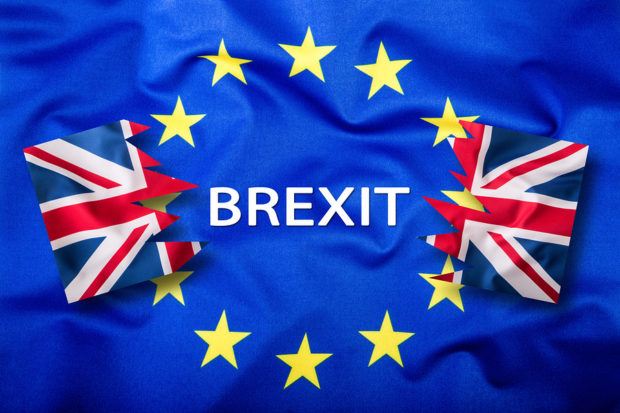European Union officials aren’t holding out much hope that U.K. Prime Minister Theresa May will next week break the deadlock in the Brexit negotiations.
A week before May delivers a speech in Florence aimed at updating her strategy towards the divorce, officials on the continent want her to propose solutions to sticking points such as the financial settlement, but aren’t confident she will do so.
“It would be very nice if we could get a clear message on where the British are” on its financial obligations with the EU, Danish Foreign Minister Anders Samuelsen said in an interview in Copenhagen. “The more concrete the message she gives, the better.”
Three months since negotiations began, the U.K. and the EU are at an impasse, limiting the likelihood that they will begin to open talks over a trade deal as soon as next month. The EU wants first to resolve differences over the Irish border, citizens’ rights and the controversial divorce bill.
One EU official said expectations for May’s speech are low as she still needs to appease members of her Conservative Party, both those who support a hard Brexit and those who are more moderate. The party holds its annual conference two weeks after the Florence address.
‘Heroic Assumption’
“We expect Prime Minister May will be speaking not only to the EU, but also across the Labour Party conference to her own party faithful at the Conservatives’ conference in October,” Roubini Global Economics analyst Andy Hartwill said in a note to clients on Friday. “It is widely assumed the ‘important intervention’ is intended to accelerate the pace of Brexit talks — that may be an heroic assumption.”
An ideal scenario for Brussels is that May acknowledges the U.K.’s financial obligations, and says that she’s open to discuss the final sum, the EU official said, asking not to be named as the matter is sensitive.
Failure to find a breakthrough means talks are unlikely to proceed to the next stage before December at the earliest, the official said. He suggested the U.K. may have misread Germany’s stance and that Berlin’s priority was maintaining the uniting of the bloc even if that meant an economic hit.
Another official from an EU government said he wouldn’t bet on a Brexit deal being secured by the time Britain leaves the bloc in March 2019. Time is running out and May’s government seems to be only now realizing the extent of the work that’s necessary, the official said on condition of anonymity.
The biggest obstacle to a deal is the Brexit bill, which some analysts suggest could run to about 100 billion euros. EU officials complain that other than saying there should be a payment, the U.K. has stayed silent on how to come up with a final sum.
‘Clearer Sense’
“We need a clearer sense of where the Brits are on the Brexit costs,” Denmark’s Samuelsen said.
Any hopes for a game-changing speech receded further after Nick Timothy, May’s former co-chief of staff, wrote on Twitter on Friday that “if the PM tried to force the pace by making too great a concession, she would risk giving away too much too soon.”
“That is not her style, nor sensible diplomacy,” said Timothy, who left the premier’s office after June’s election.





















 Reinsurance Program Could Wipe Out Need for Calif. FAIR Plan: Legal Exec
Reinsurance Program Could Wipe Out Need for Calif. FAIR Plan: Legal Exec  High Court Ruling on Trump Tariffs to ‘Ease Uncertainty,’ Says AM Best
High Court Ruling on Trump Tariffs to ‘Ease Uncertainty,’ Says AM Best  AI Got Beat by Traditional Models in Forecasting NYC’s Blizzard
AI Got Beat by Traditional Models in Forecasting NYC’s Blizzard  State Farm Inked $1.5B Underwriting Profit for 2025; HO Loss Persists
State Farm Inked $1.5B Underwriting Profit for 2025; HO Loss Persists 



